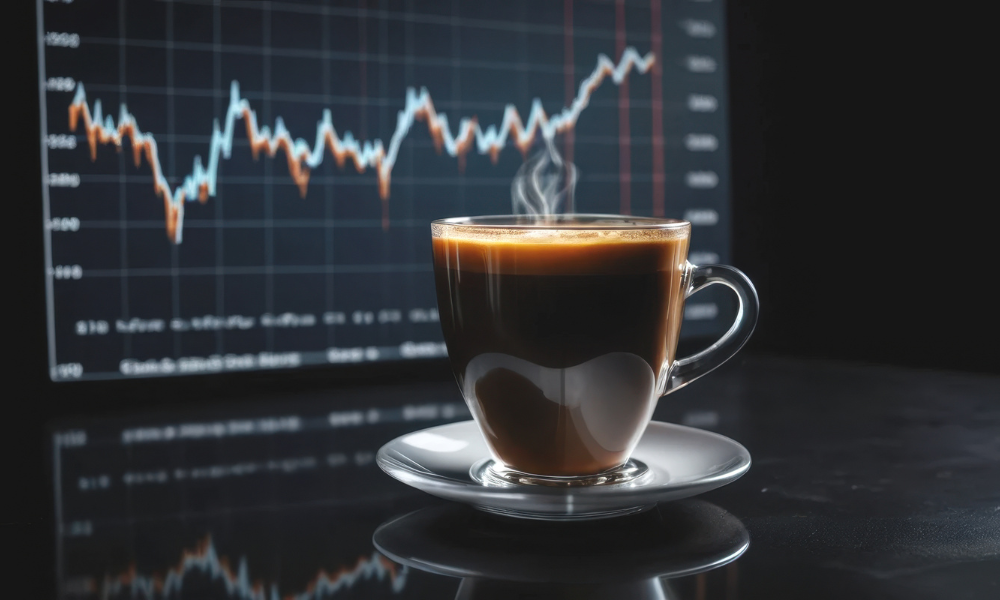

by Anuradha Raghu and Nguyen Dieu Tu Uyen
Coffee in the US risks getting even more expensive as President Donald Trump’s sweeping tariff measures hit Vietnam, one of its biggest suppliers, with hefty levies.
The Southeast Asian nation is the world’s leading producer of robusta coffee, the variety used in instant drinks and espressos. The 46% tariff on its goods — among the highest of the rates Trump imposed against US trading partners — risks disrupting flows to a major consumer and comes as coffee costs have already soared on the back of harvest shortfalls.
New York futures for arabica, the other major variety, have held near a record high after adverse weather in key growing regions. The tight supply also pushed robusta futures in London up more than 40% over the past year.
“The tariffs will likely add to coffee market volatility and could exacerbate existing supply tightness,” said Priyanka Sachdeva, senior market analyst at brokerage Phillip Nova Pte. in Singapore. “US coffee prices could rise, especially for robusta-based products.”
Nguyen Nam Hai, chairman of the Vietnam Coffee and Cocoa Association, said he was “stunned” to see such a high tax rate against the nation. “Everyone is worried, especially about the signed export contracts,” he said by telephone.
Still, the country ships a lot to other regions like the European Union, helping to temper the impact.
But for US buyers, alternatives are limited, with Vietnam its third-biggest supplier. Although some importers may try to increase purchases from Brazil, Indonesia and Ivory Coast, those countries cannot fully replace Vietnam’s high volume and consistent quality, Sachdeva said. And, some of them were hit by steep tariffs, too.
Switching to arabica may also not be viable as robusta is critical for instant coffee and espresso, she said. The tariffs will make it “even harder for US buyers to secure affordable robusta, leading to potential shortages,” she said.
Copyright Bloomberg News

It's a showdown for the ages as wealth managers assess its impact on client portfolios.

CEO Ritik Malhotra is leveraging Savvy Wealth's Fidelity partnership in offers to Commonwealth advisors, alongside “Acquisition Relief Boxes” filled with cookies, brownies, and aspirin.

Fraud losses among Americans 60 and older surged 43 percent in 2024, led by investment schemes involving crypto and social manipulation.

The alternatives giant's new unit, led by a 17-year veteran, will tap into four areas worth an estimated $60 trillion.

"It's like a soap opera," says one senior industry executive.
RIAs face rising regulatory pressure in 2025. Forward-looking firms are responding with embedded technology, not more paperwork.
As inheritances are set to reshape client portfolios and next-gen heirs demand digital-first experiences, firms are retooling their wealth tech stacks and succession models in real time.
